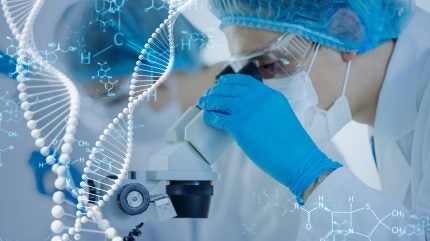

The US Food and Drug Administration (FDA) has awarded regenerative medicine advanced therapy (RMAT) status to the adipose-derived mesenchymal stem cells (HB-adMSCs) of Hope Biosciences, aimed at treating individuals diagnosed with relapsing-remitting multiple sclerosis (RRMS).
The designation was granted based on research carried out by Hope Biosciences Research Foundation (HBRF), a US-based non-profit clinical research organisation.

Discover B2B Marketing That Performs
Combine business intelligence and editorial excellence to reach engaged professionals across 36 leading media platforms.
Promising top-line outcomes of a Phase II trial that took place at HBRF during 2023 and 2024 formed the basis for the designation.
This study marked the first instance worldwide in which individuals with MS repeatedly received such high doses of pure mesenchymal stem cells.
In the randomised, balanced, single-centre trial, a double-blind method was employed, and 24 subjects were enrolled.
Over a span of 32 weeks, the patients in this treatment group were given six intravenous infusions, each consisting of 200 million stem cells – a total of 1.2 billion cells administered.

US Tariffs are shifting - will you react or anticipate?
Don’t let policy changes catch you off guard. Stay proactive with real-time data and expert analysis.
By GlobalDataHB-adMSCs have been administered to individuals, ranging from 18 months to over 90 years of age, through more than 50 clinical studies and expanded access programmes authorised by the US regulator.
The trials have spanned a variety of disease conditions, and treatments have also been provided under the Federal Right to Try Act.
To be eligible for RMAT status, a therapy must show initial clinical evidence that it can address a serious or life-threatening condition with unmet medical needs.
Hope Biosciences CEO Donna Chang stated: “Receiving the first RMAT designation for multiple sclerosis is a tremendous acknowledgment of our technology’s potential to impact the world of debilitating autoimmune conditions.
“HBRF has been an instrumental partner, leveraging their unparalleled expertise in cell therapy as well as their proven ability to deliver compassionate care tailored to our community’s needs through pioneering, patient-centred protocols. It is a privilege to collaborate with them in advancing hope for patients.”
Cell & Gene Therapy coverage on Pharmaceutical Technology is supported by Cytiva.
Editorial content is independently produced and follows the highest standards of journalistic integrity. Topic sponsors are not involved in the creation of editorial content.




